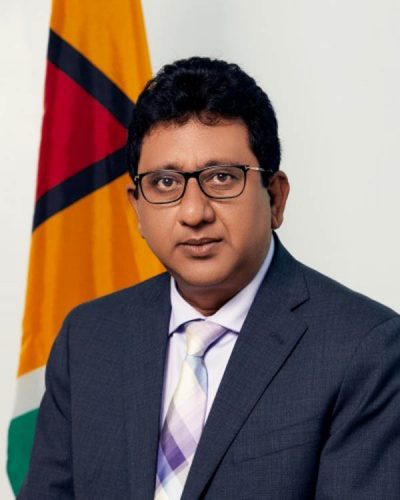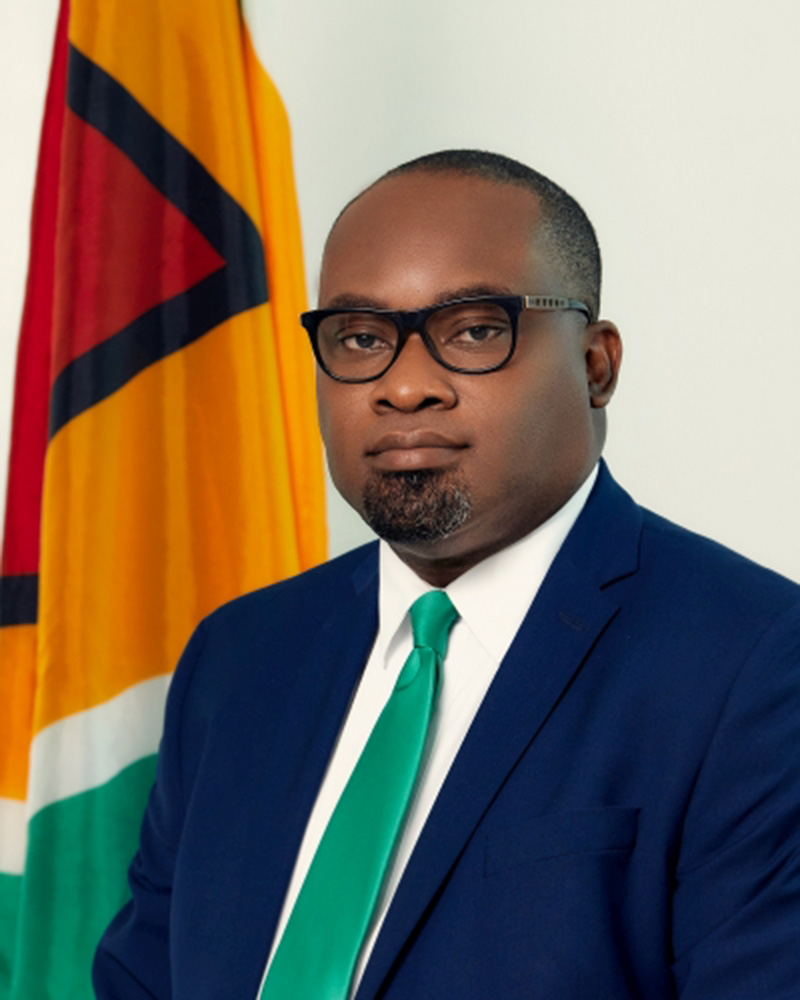Acting Chief Justice Roxane George SC, has tentatively set August 23rd to rule on whether the President had meaningfully consulted the Opposition Leader in appointing Patrick Findlay Chairman of the Police Service Commission (PSC).
At the same time, she will also rule on whether Chandra Gajraj’s appointment as Chair of the Integrity Commission and that of the other members of that Commission was lawfully done, or fell short of meaningful consultation.
Yesterday, the Chief Justice heard arguments from counsel for Opposition Leader Aubrey Norton, whose contention is that President Irfaan Ali did not “meaningfully consult” him before making the appointments as is required by law.

Referencing case law authorities, Senior Counsel Roysdale Forde, who represents Norton, argued that the President, on whom the onus rests to initiate the consultative process, failed in ensuring that the requirements therefor were satisfactorily met.
Against this background he said that the President ought to have made transparent what criteria/reasons were being considered that ultimately led to the appointments, so as to ensure that they were not unilaterally done.
Attorney General (AG) Anil Nandlall SC—one of the Respondents in the action advanced, however, that apart from the fact that the ultimate decision rests with the President to make the appointments, he did “fairly” and “reasonably” consult with Norton before so making.
Forde’s main bone of contention is that without stated reasons, Norton could not properly direct his attention to consulting with the President on the appointments, as there were no guidelines to activate that process.
Counsel’s position was that the President’s failure to so ensure, inhibited the process of consultation envisioned by the Constitution which seeks the involvement of both sides of the political divide.
“It is important that any consultee should be aware of the basis on which a proposal put forward….consultation has been considered and will thereafter be considered” Forde quoted from case law precedent.
Notwithstanding as Nandlall had pointed out that the Curriculum Vitae of all the nominees for the Chairman posts had been submitted, Forde said that this was merely one facet of consultation.
Strenuously objecting to Nandlall’s argument, Forde was adamant that it was only when the President’s reasons are provided that the Leader of the Opposition can then express an opinion on the “subject of the consultation.”
“With the provision of only the Curriculum Vitae, the Leader of the Opposition would be forced to express an opinion on the persons recommended only in abstract and or only on the basis of Curriculum Vitae,” Forde contended.
He then held to his contention that the President’s failure to provide reasons for the Chairpersons selected, materially impaired the process of “meaningful consultation” and “consultation” and significantly inhibited the ability of the Opposition Leader to consider making any nomination of his own, and to assess the nominees of the President in order to give a considered opinion.
Meanwhile, regarding the appointment of the members of the Integrity Commission, Forde argued that the President ought to have also provided reasons before going ahead with those appointments.
In the absence thereof, he said that there could not have been meaningful consultation with the Opposition Leader, which therefore leaves the appointments wanting.
Observing, however, from the AG’s submissions that the President had considered those nominees as being persons of “good standing in society,” the Chief Justice enquired from Forde whether that did not amount to a reason.
Responding in the negative, Forde argued that that reason would have been made from a subjective assessment by the president and could not therefore be advanced as a reason; since every person may not hold the view that the persons are of good standing.
Justice George then immediately enquired from Forde whether it would not amount to an objective assessment, irrespective of who is making it. Against this background she said that any person would speak “glowingly,” of the potential nominees they are putting forward.
The Judge said that while one may have an “erroneous” view of someone’s good standing, and may want to challenge it, it does not change the fact that it is a reason advanced.
Meanwhile, Nandlall commenced his submissions by asking the Court to recognize that the duty to consult has to be viewed in the context of the particular case; and in the instant case argued that the President was not only fair, but reasonable in his consultation with the Opposition Leader.
Regarding the appointments of Findlay and Gajraj, Nandlall said that the President could well have gone ahead with those appointments after Norton had made requests only for the CVs. He said that he therefore found it strange that the Opposition is requiring additional reasons, when all he had requested were the academic qualifications of the two nominees.
The AG was adamant that in the specific context of the case, the President after ensuring that the CVs were made available, would have acted reasonably in then making the appointments.
As it related to the appointment of the members of the Integrity Commission, the AG said that not only did Norton also have their CVs and the added reason of “good standing,” but that he had “fair” and “ample opportunity” to participate in the consultation process as well.
This, the AG argued, is the legally fundamental principle on which consultation rests—ensuring participation.
Following the two-hour hearing, the Chief Justice announced August 23rd as being the date she hopes to deliver her ruling.
In his fixed date application (FDA), Norton (the Applicant) argues that the President appointed Findlay as Chairman of the PSC without first meaningfully consulting him as is required by Article 210 (1) (a) of the Constitution.
Further, he said that President Ali also appointed Gajraj as Chair of the Integrity Commission without meaningfully consulting him in accordance with Section 3 (4) of the Integrity Commission Act.
Norton is arguing that the appointments are “illegal, null, void and of no legal effect” and wants the Court to so declare.
He also wants the Court to declare that the appointments of Dr. Kim Kyte-Thomas, Imaam Mohamed Ispahani Haniff, Pandit Hardesh Tewari and Reverend Wayne Bowman as members of the Integrity Commission were done without proper consultation and are therefore illegal.
The Opposition Leader advances that Findlay’s and Gajraj’s appointments and the appointment of the entire Integrity Commission were unilaterally done by the President, since he (Norton) was not “afforded a reasonable opportunity to express a considered opinion on the subject of the Consultation.”
He says that the PSC was also not constitutionally constituted.
Norton is arguing that in those circumstances, Findlay and Gajraj cannot lawfully exercise any of the functions or powers vested in the Chairs of the Police Service and Integrity Commissions respectively.
Among other things, Norton wants the Court to declare what he calls the President’s “termination of the consultation process,” as being “arbitrary, unreasonable and unconstitutional.”
He also wants a declaration that the life of the PSC and the chairmanship of the last Commission expired on August 9th, 2021 and that there is therefore no Chairman.
Guyana’s constitution stipulates that the Chair of the Police Service Commission is to be appointed by the President after “meaningful consultation” with the Leader of the Opposition.
The two leaders met for the first time on May 13th, 2022, after which they issued a joint statement committing to meeting again within a week. However, that meeting did not happen within the stipulated timeline and the meeting was rescheduled for Monday, May 30th but Norton was unable to attend the meeting owing to prior commitments.
Following the first meeting, Norton requested the curriculum vitae of the proposed appointees to the commissions along with additional information. The CVs were supplied to him followed by a back and forth between the government and himself relating to the additional information he was seeking.
Norton is adamant that the president must present the grounds on which the nominees were selected in order for an informed decision to be made.
However, the government, through Minister of Parliamentary Affairs and Governance Gail Teixeira, has contended that President Ali is not mandated to provide any grounds and that he has complied with the constitution by providing the CVs of the appointees.






